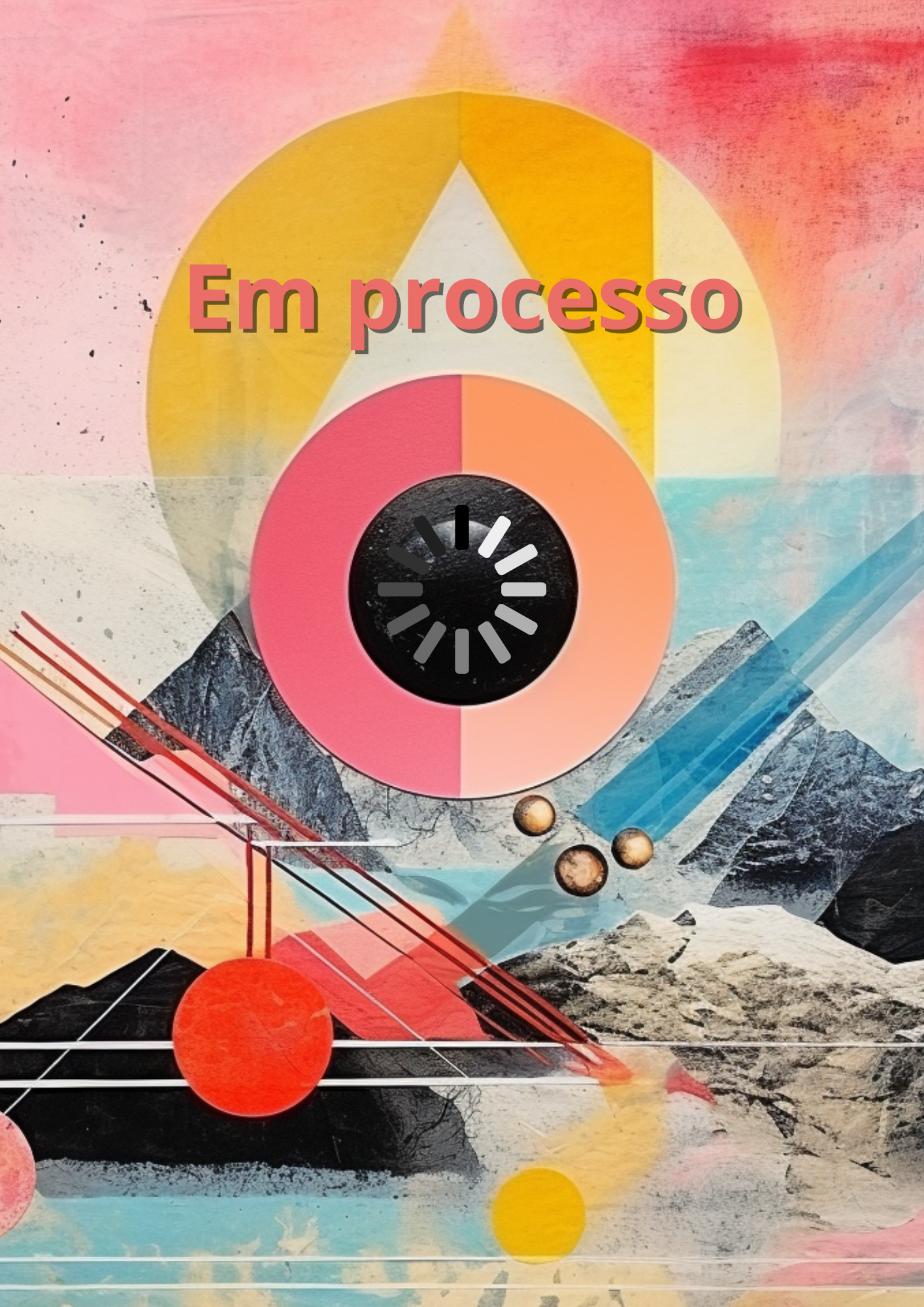Clues for a fractal ontology in Félix Guattari: the fractalization of existential territories
Published 2024-10-10
Keywords
- Fractal Ontology,
- Fractalization,
- Guattari,
- Schizoanalysis
How to Cite
Copyright (c) 2024 Miguel Delanoy Polidori, Luciano Bedin da Costa, José Ricardo Kreutz

This work is licensed under a Creative Commons Attribution 4.0 International License.
Abstract
This article conducts a theoretical and conceptual investigation of the concept of fractalization in the philosophy of difference and schizoanalysis, aiming to explore the fractal ontology proposed by Félix Guattari in his recent works. To achieve this, we propose an understanding of fractal geometry in mathematics, map some clues of the early appearances of fractal geometry in the philosophy of difference, and trace a theoretical path through the concepts of smooth space and striated space in A thousand plateaus, followed by the theory of lines, to ultimately reach fractal ontology, which is seen to be articulated with the machinic ontology proposed by Guattari in Chaosmosis. By emphasizing the ethical, aesthetic, and political dimensions of fractalization, we conclude that fractal ontology may become a useful analytical tool for creating metamodelizations capable of dealing with an ontological pluralism and the continuous mechanisms of capture and homogenization within processes of subjectivation.
Downloads
References
- ASSIS, Thiago Albuquerque de et al. Geometria fractal: propriedades e características de fractais ideais. Revista Brasileira de Ensino de Física, São Paulo, v. 30, n. 2, pp. 1-10, 2008. Disponível em: https://www.scielo.br/j/rbef/a/NkxTkgKJJdBX6Zy95zWHZkG. Acesso em: 24 jul. 2024. DOI: https://doi.org/10.1590/S1806-11172008000200005
- CARVALHO, Alexandre Filordi de. Ontología maquínica en Félix Guattari. In: JIMÉNEZ, Marco; VALLE, Ana María (Orgs.). Pensar la técnica: vida, cultura y educación. México: Juan Pablos Editor, 2023, pp. 2863-3189.
- CASTRO, Eduardo Viveiros de. Filiação intensiva e aliança demoníaca. Novos Estudos CEBRAP, São Paulo, n. 77, pp. 91-126, 2007. Disponível em: https://novosestudos.com.br/wp-content/uploads/2017/05/03_filiacao_intensiva_alianca_demoniaca.pdf.zip. Acesso em: 24 jul. 2024. DOI: https://doi.org/10.1590/S0101-33002007000100006
- CONJUNTO de Mandelbrot. Wikipédia, a enciclopédia livre. Disponível em: https://pt.wikipedia.org/wiki/Conjunto_de_Mandelbrot. Acesso em: 24 jul. 2024.
- COSTA, Luciano Bedin da; AMORIM, Alexandre Sobral Loureiro. Uma introdução à teoria das linhas para a cartografia. Atos de Pesquisa em Educação, Blumenau, v. 14, n. 3, pp. 912-933, 2019. Disponível em: https://ojsrevista.furb.br/ojs/index.php/atosdepesquisa/article/view/8045. Acesso em: 24 jul. 2024. DOI: https://doi.org/10.7867/1809-0354.2019v14n3p912-933
- COSTA, Luis Artur; FONSECA, Tania Mara Galli; AXT, Margarete. Da natureza do artifício e dos artifícios da natureza: Simondon entre o natural e o artificial. Informática na Educação: Teoria & Prática, Porto Alegre, v. 15, n. 1, pp. 45-57, 2012. Disponível em: https://seer.ufrgs.br/index.php/InfEducTeoriaPratica/article/view/20866. Acesso em: 24 jul. 2024. DOI: https://doi.org/10.22456/1982-1654.20866
- CULP, Andrew. Dark Deleuze. Minneapolis: University of Minnesota Press, 2016. DOI: https://doi.org/10.5749/9781452958392
- DELEUZE and Guattari in Vincennes: A thousand plateaus, lecture 1. Vincennes, França: 18 nov. 1975. Disponível em: https://www.youtube.com/watch?v=_TwX8x3FuyM. Acesso em: 24 jul. 2024.
- DELEUZE, Gilles; GUATTARI, Félix. Mil platôs: capitalismo e esquizofrenia 2, vol. 1. São Paulo: Editora 34, 1995.
- DELEUZE, Gilles; GUATTARI, Félix. Mil platôs: capitalismo e esquizofrenia 2, vol. 5. São Paulo: Editora 34, 1997.
- DELEUZE, Gilles; GUATTARI, Félix. O anti-Édipo: capitalismo e esquizofrenia 1. São Paulo: Editora 34, 2010.
- DELEUZE, Gilles; GUATTARI, Félix. O que é a filosofia? São Paulo: Editora 34, 1992.
- DELEUZE, Gilles; PARNET, Claire. Diálogos. Trad. Eloisa Araújo Ribeiro. São Paulo: Escuta, 1998.
- DELEUZE, Gilles. Conversações. Rio de Janeiro: Editora 34, 2000.
- GLEICK, James. Caos: a criação de uma nova ciência. Rio de Janeiro: Campus, 1989.
- GUATTARI, Félix. Caosmose: um novo paradigma estético. São Paulo: Editora 34, 1992.
- GUATTARI, Félix. Os anos de inverno: 1980-1985. São Paulo: N-1 Edições, 2022.
- GUATTARI, Félix. Ritornelos e afetos existenciais. Gesto, Imagem e Som: Revista de Antropologia, São Paulo, v. 4, n. 1, pp. 383-397, 2019. Disponível em: https://www.revistas.usp.br/gis/article/view/162385. Acesso em: 24 jul. 2024. DOI: https://doi.org/10.11606/issn.2525-3123.gis.2019.162385
- GUATTARI, Félix. Schizoanalytic cartographies. Londres: A&C Black, 2012.
- LAPOUJADE, David. Deleuze, os movimentos aberrantes. São Paulo: N-1 Edições, 2015.
- LÉVY, Pierre. O que é o virtual? Rio de Janeiro: Editora 34, 1996.
- MANDELBROT, Benoît. How long is the Coast of Britain? Statistical self-similarity and fractional dimension. Science, v. 156, n. 3775, pp. 636-638, 1967. Disponível em: https://www.science.org/doi/10.1126/science.156.3775.636. Acesso em: 24 jul. 2024. DOI: https://doi.org/10.1126/science.156.3775.636
- MANDELBROT, Benoît. The fractal geometry of nature. Nova Iorque: Freeman, 1982.
- ROLNIK, Suely; GUATTARI, Félix. Micropolítica: cartografías del deseo. Buenos Aires: Tinta Limón, 2006.
- ZOURABICHVILI, François. O vocabulário de Deleuze. Rio de Janeiro: Relume-Dumará, 2004.

